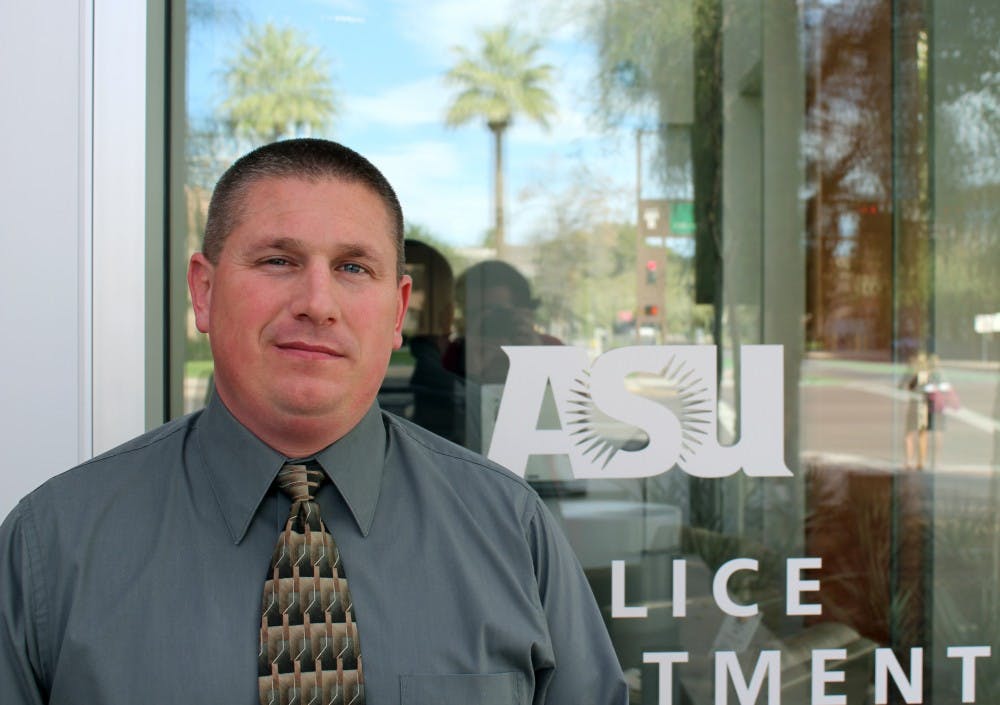The Governor’s Office of Highway Safety granted the ASU Police Department more than $68,000 for DUI, youth alcohol and selective traffic enforcement.
The grant is split into two parts: $60,000 for DUI and youth alcohol enforcement, which primarily covers overtime pay for officers a part of the task force, and $5,000 to be spent on Portable Breath Test Instruments.
The department was also awarded $3,080 for Selective Traffic Enforcement, a program focused on adding police to monitor pedestrians and cyclists in the area, according to a press release issued by ASU police on Feb. 10.
Commander John Thompson, who oversees Tempe campus patrol operations for the ASU police, said the GOHS has given out grants to local police departments for as long as he’s been an officer.
“This year – in 2016 – we applied for another grant and we were awarded monies that we will use,” Thompson said. “We began utilizing that money over the Christmas holiday season so during pretty much the entire month of December … every weekend and the week leading up to Christmas and the week after Christmas there are ongoing task force efforts almost on a nightly basis.”
Thompson said the department does not ask for a specific amount of money, but simply applies for a grant and the GOHS determines the amount.
The money allows the department to put more officers on duty during bigger campus events, such as football games.
“This money allows us to bring in officers on overtime and go out and specifically spend their efforts looking for DUIs, people violating DUI laws, and then as well as any other traffic related issues that we might encounter,” Thompson said. “When we have … Devilpalooza in a couple of weekends here we’ll have a couple of officers in.”
Thompson said the grant will help pay for around 11 PBT breathalyzers the department bought recently.
“We already have multiple of those machines that most of our officers do carry, this is just more that we can put in the hands of even more of our officers,” Thompson said.
This year’s grant was approximately $15,000-20,000 more than last year, Thompson said, mainly because the University and department have both grown.
GOHS Director Alberto Gutier said the office is glad to grant this money to several departments and organizations across Arizona.
Gutier said overall the ASU police does a good job utilizing their grants, which is why they are happy to provide them with money yearly.
“PBTs are about $500 apiece and that includes mouth pieces that PBTs use," Gutier said. "We probably provided a thousand plus PBTs the last couple years for agencies around the state. You can buy a very good PBT for $350-400, you add to that shipping and mouthpieces – it’s about $500 so if we give $5,000 it means they can order 10 PBTS.”
The Selective Traffic Enforcement is an effort to educate and inform students on campus the laws of being a pedestrian or a bicyclist, Gutier said. He said new students often don’t know the laws, which can lead to traffic accidents, so the education and warning is better than just giving a ticket.
Gutier said the department gladly provides funding for programs protecting pedestrians and bicyclists because of the rate of pedestrian fatalities in Arizona.
Daniel Roman, a civil engineering junior, said he has had every experience as a pedestrian that one can imagine.
“I’ve been hit by a long boarder, and I’ve been hit by a car while long boarding,” Roman said. “I was going across the cross walk and the car just didn’t see me.”
Roman said he thinks education for pedestrians would be good, since many students on campus don’t have any knowledge of the laws of being a pedestrian.
“I always just figure pedestrians have right of way,” Roman said. “I think it could be valuable to educate students on what they can and can’t do.”
Reach the reporter at maatenci@asu.edu or follow @mitchellatencio on Twitter.
Like The State Press on Facebook and follow @statepress on Twitter.




